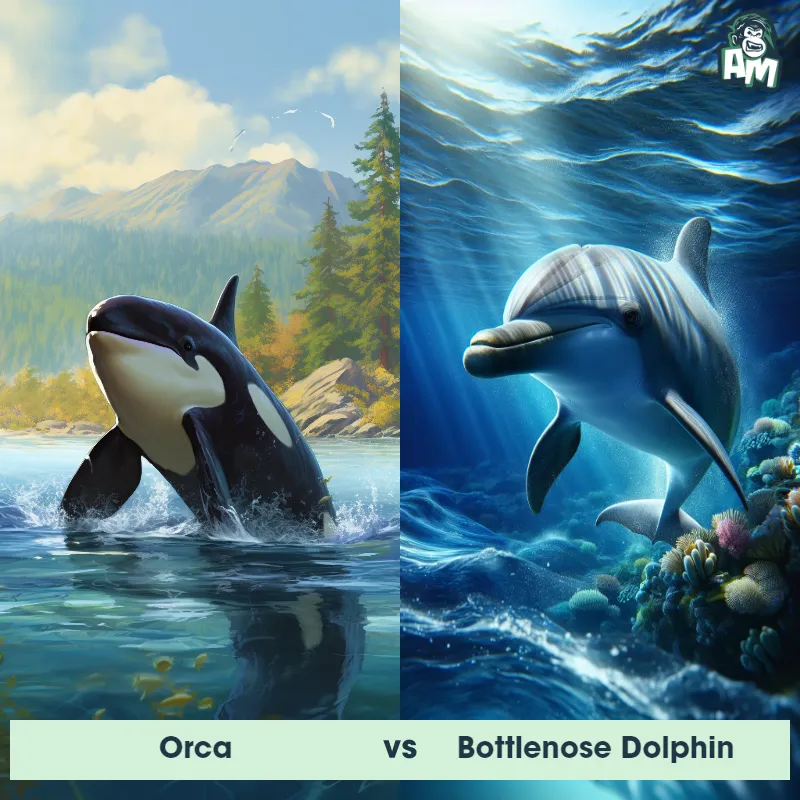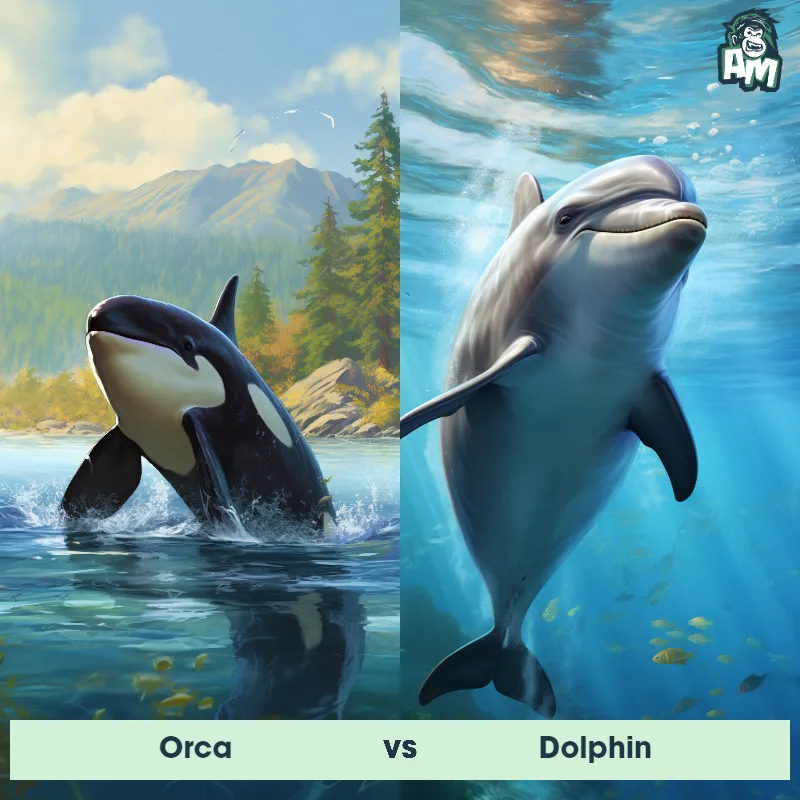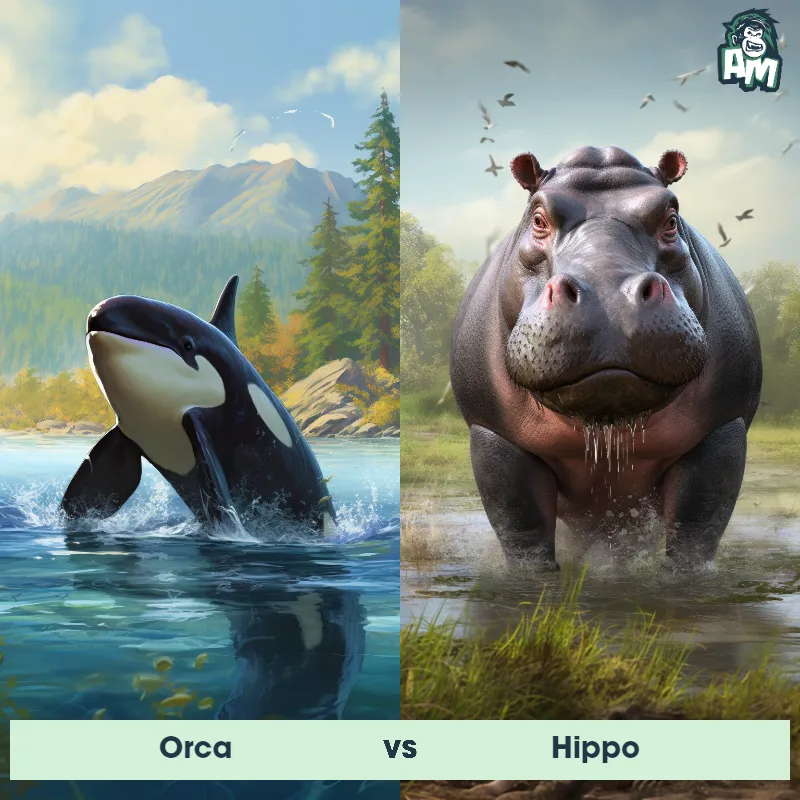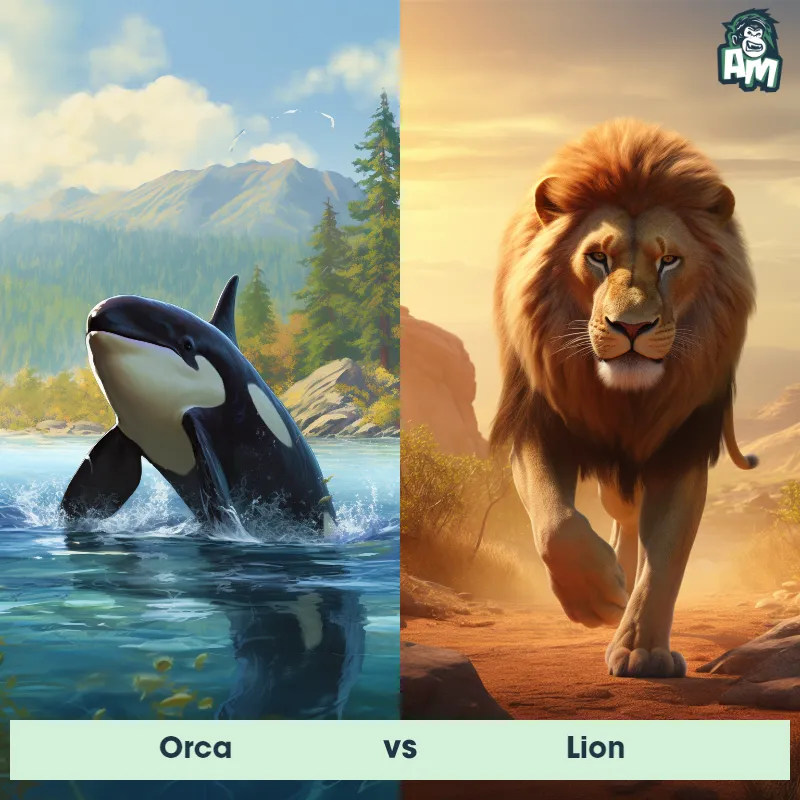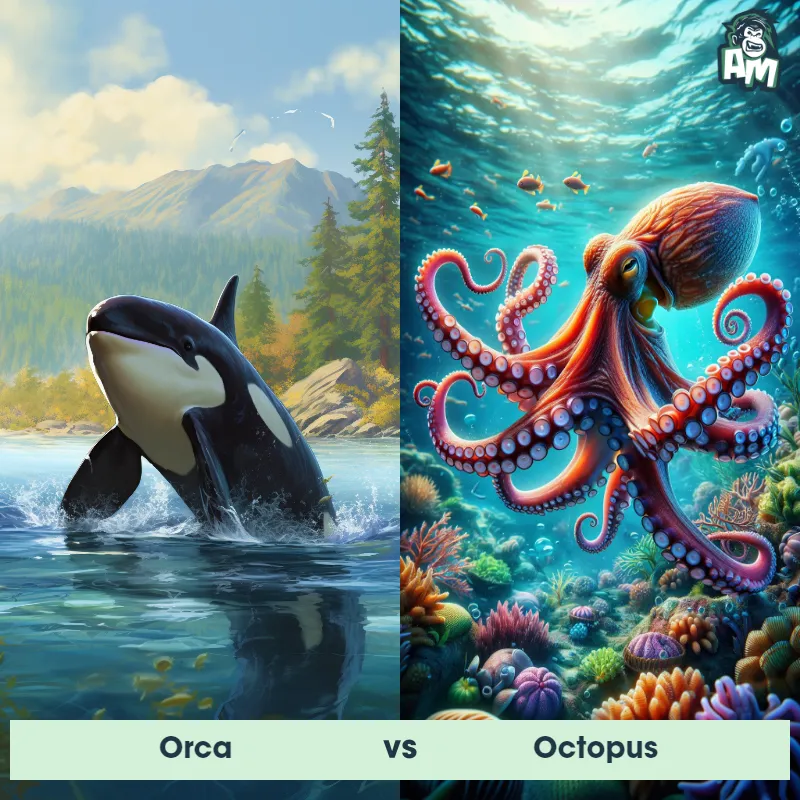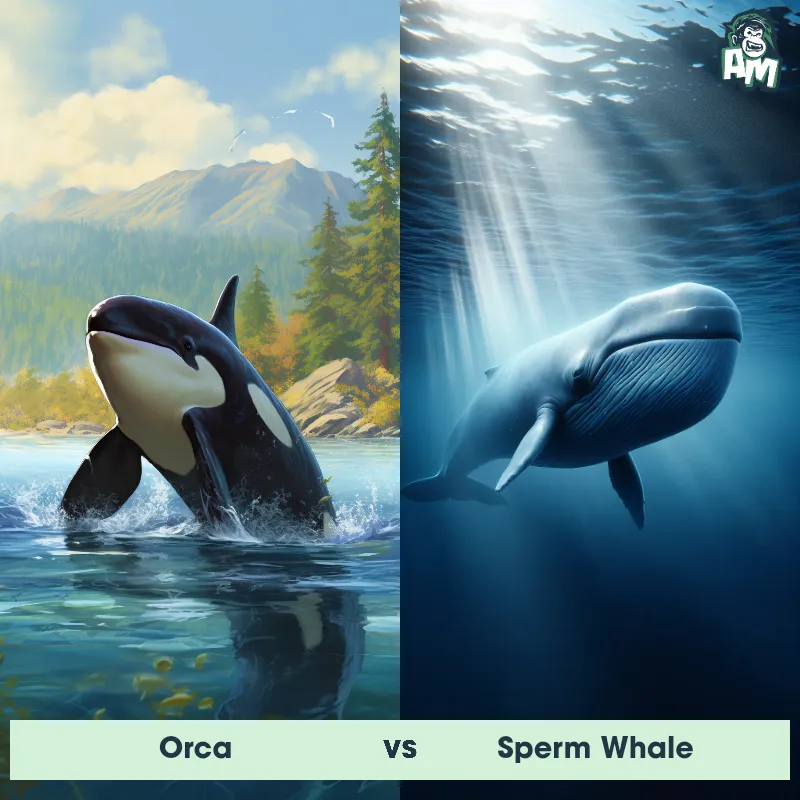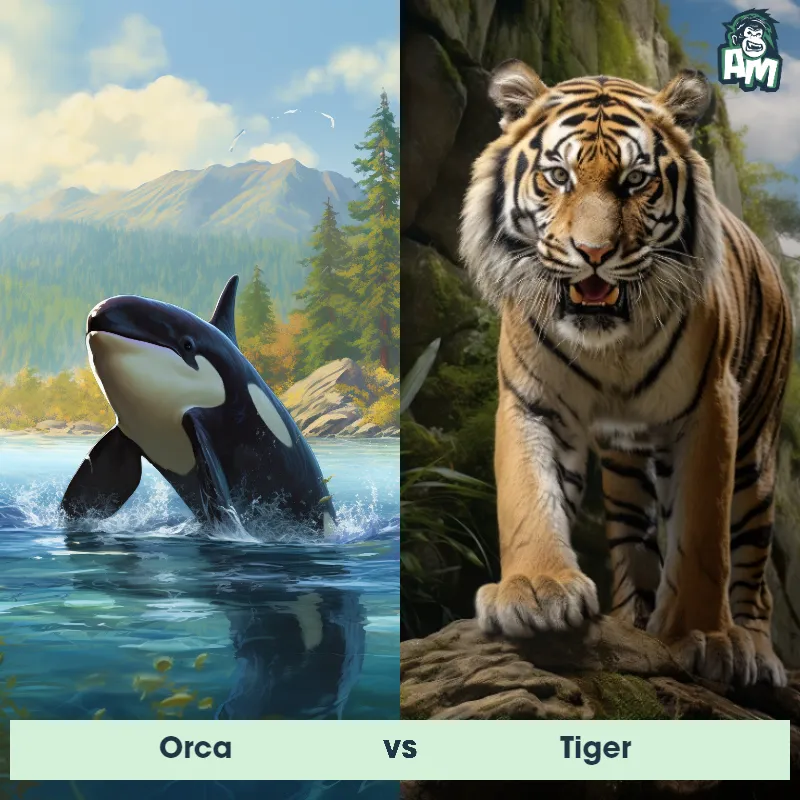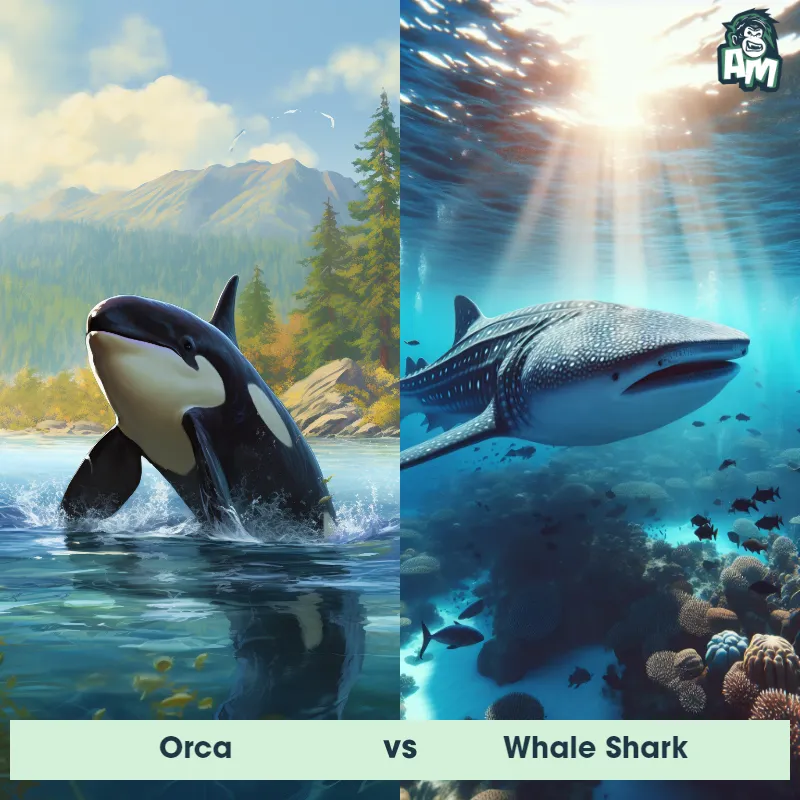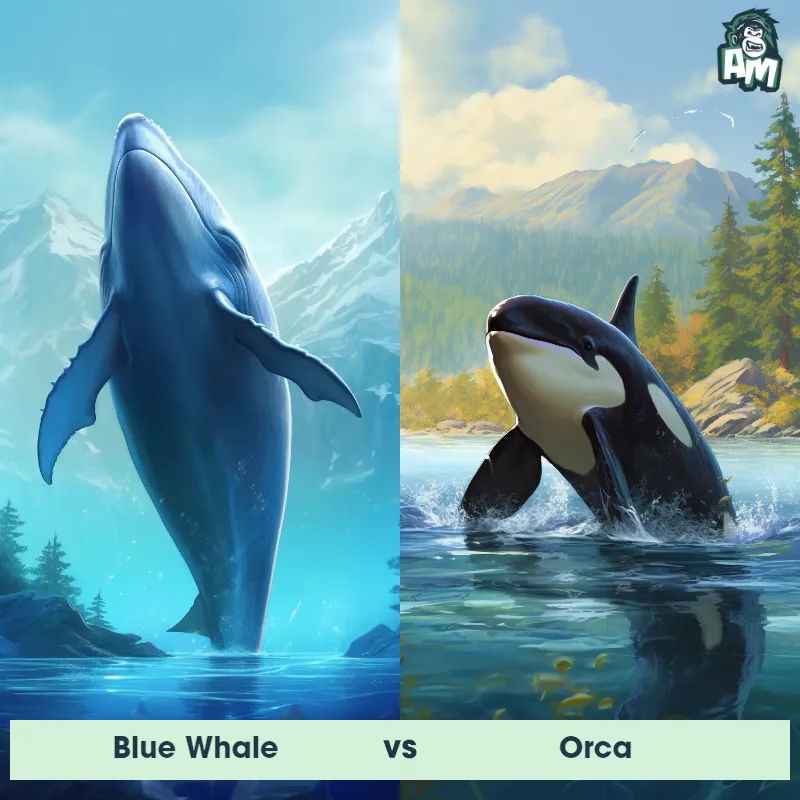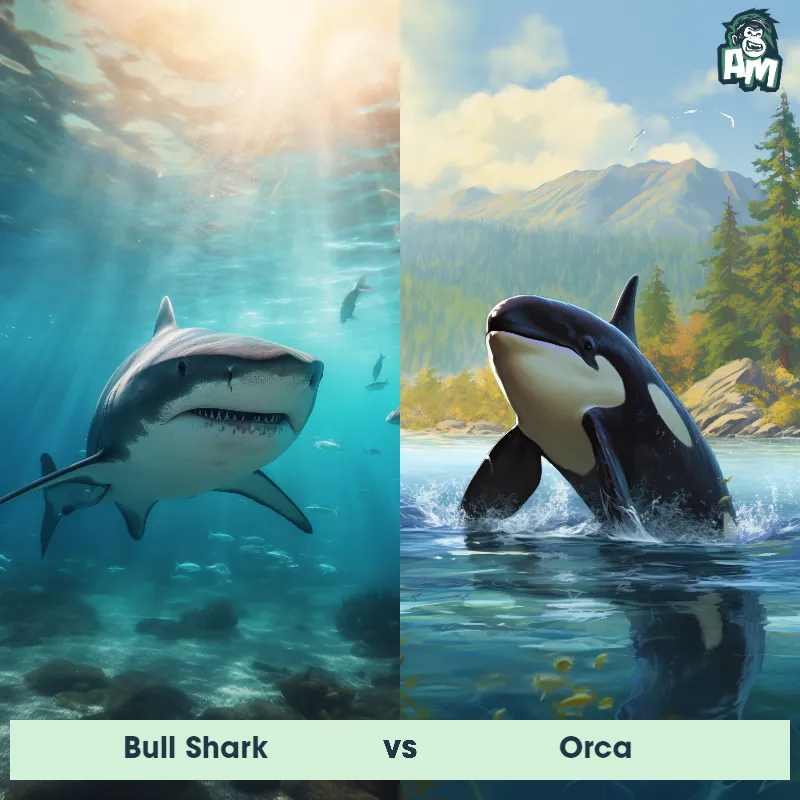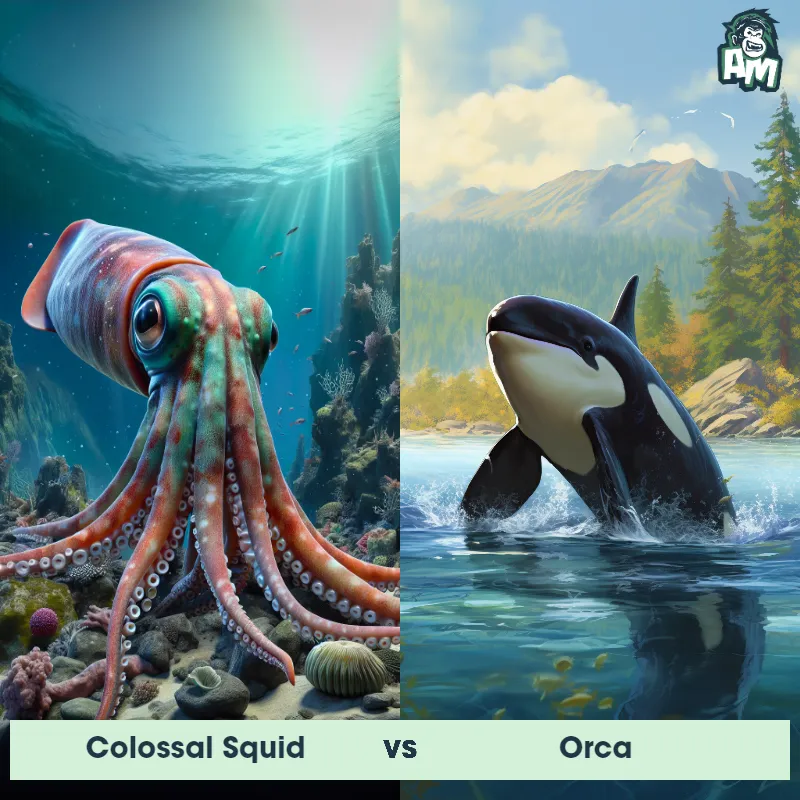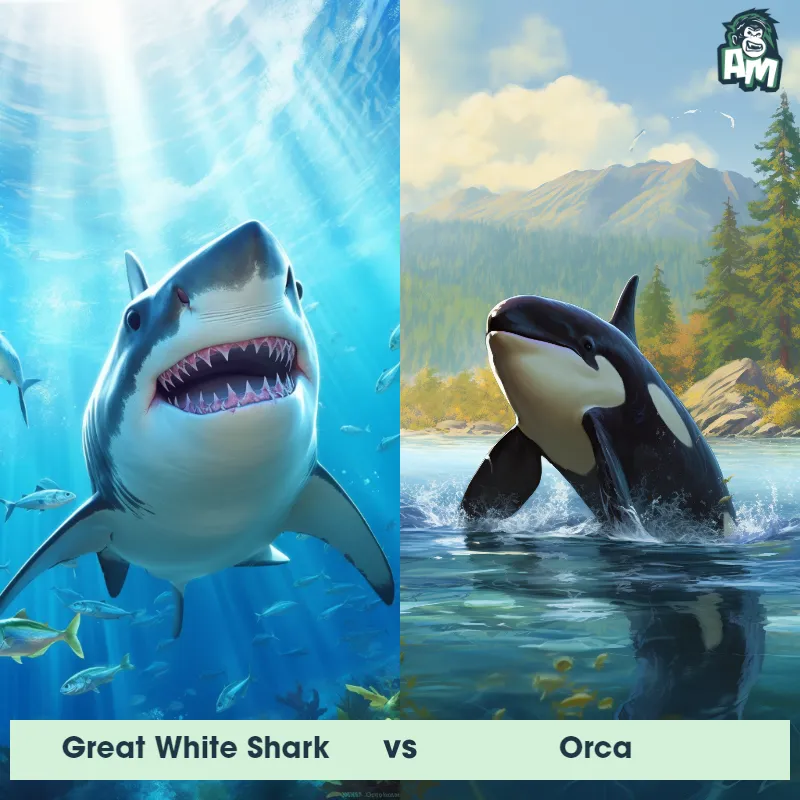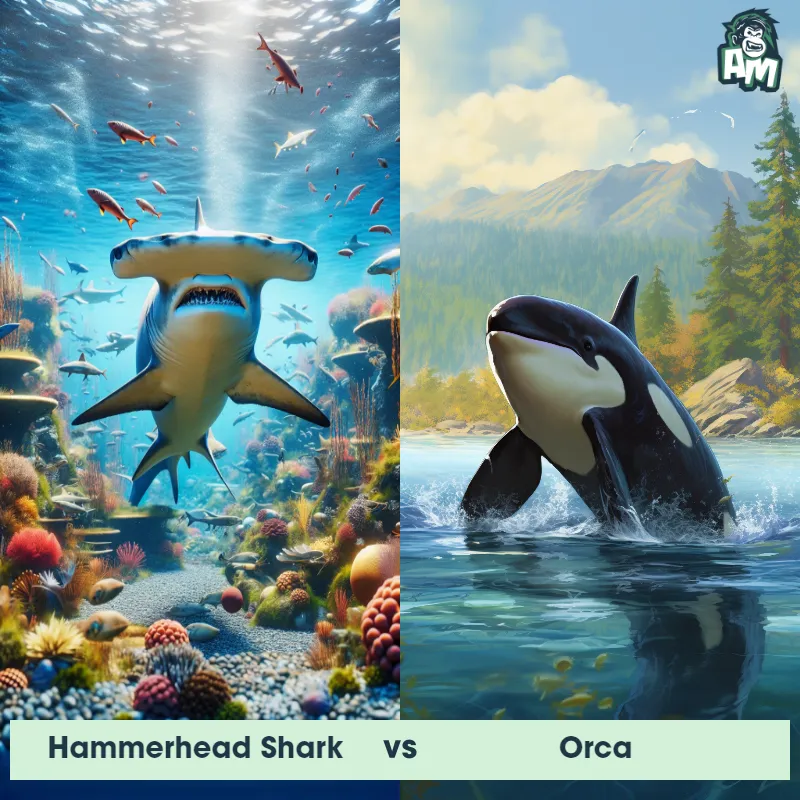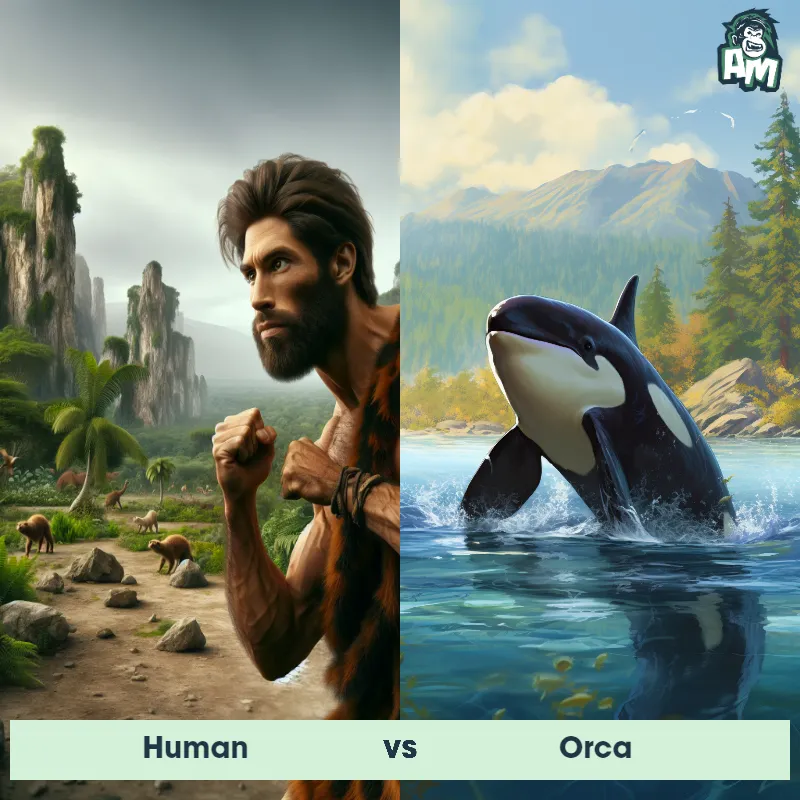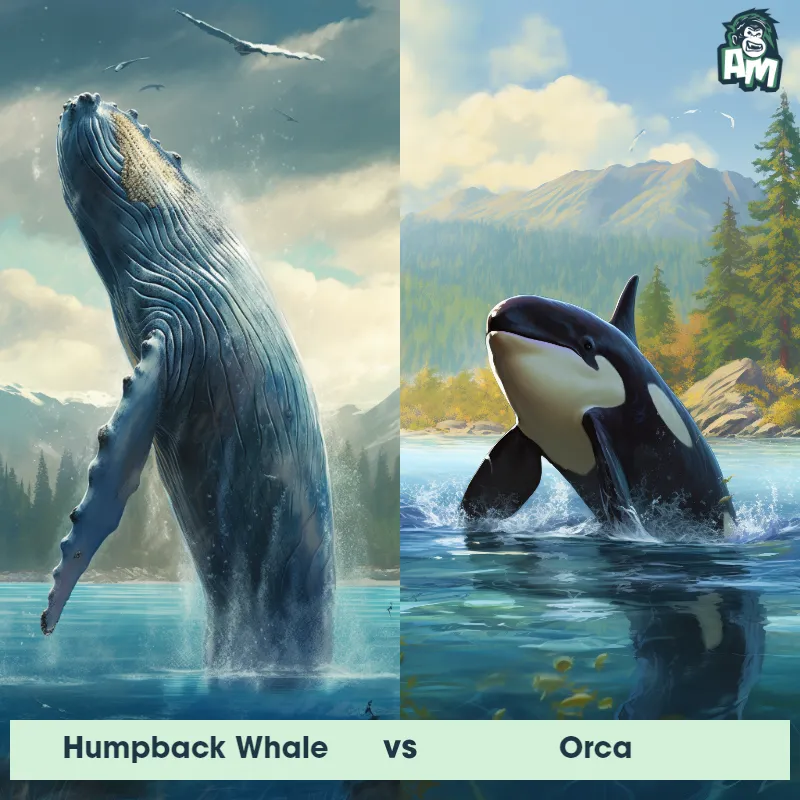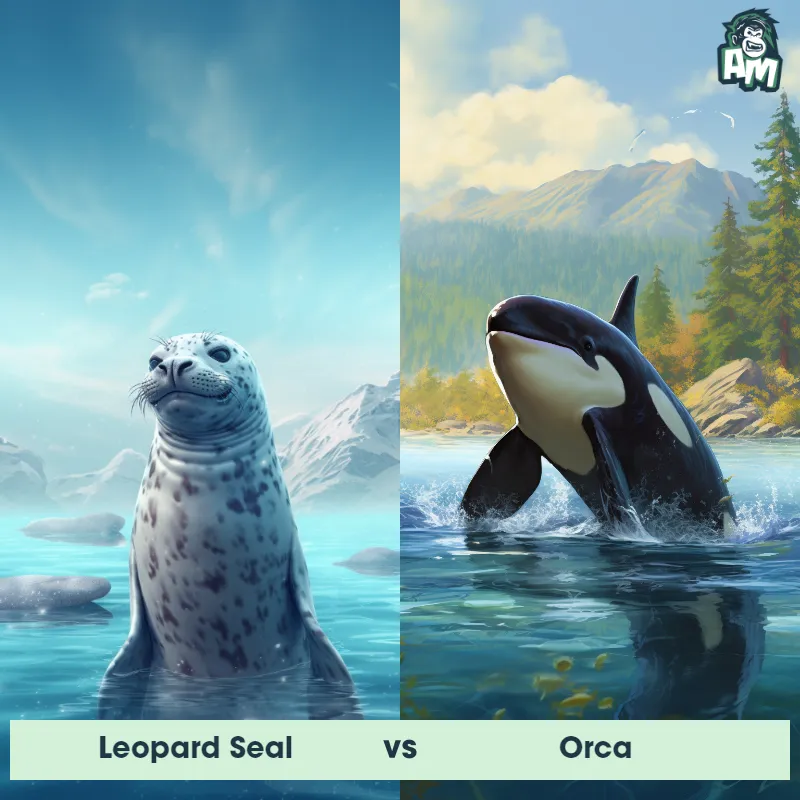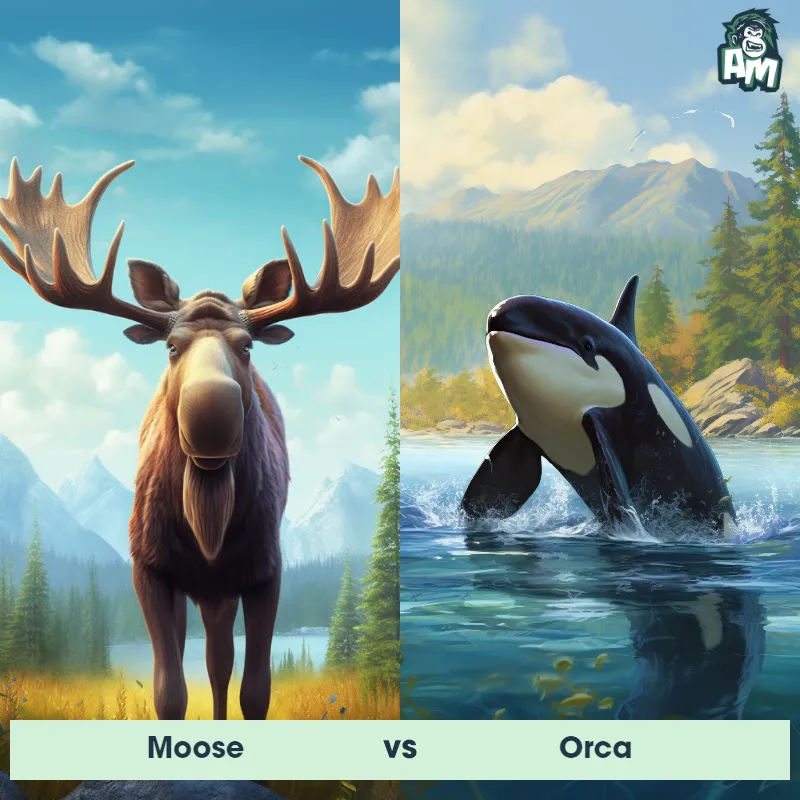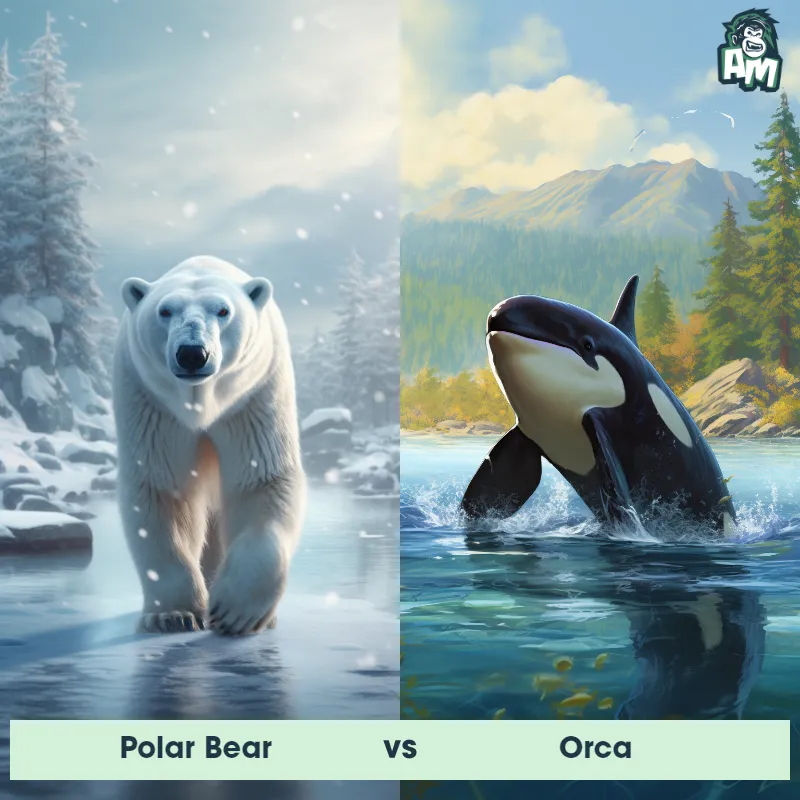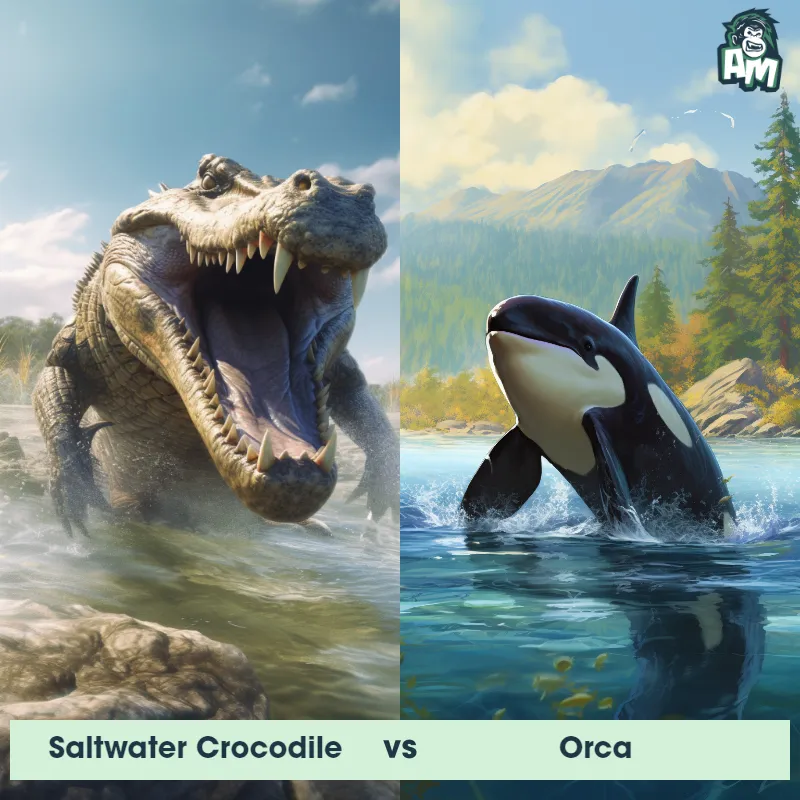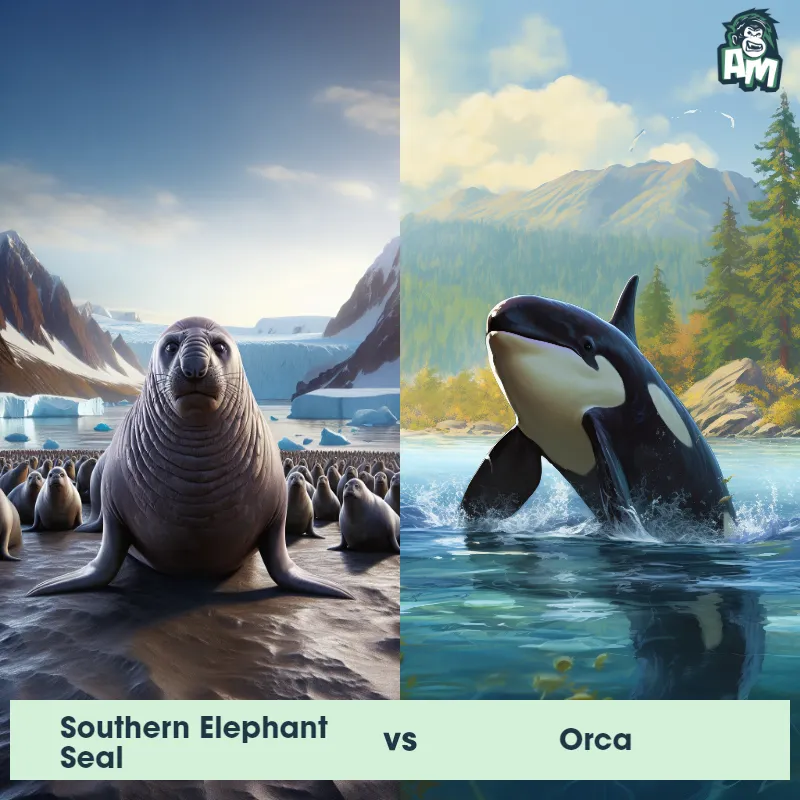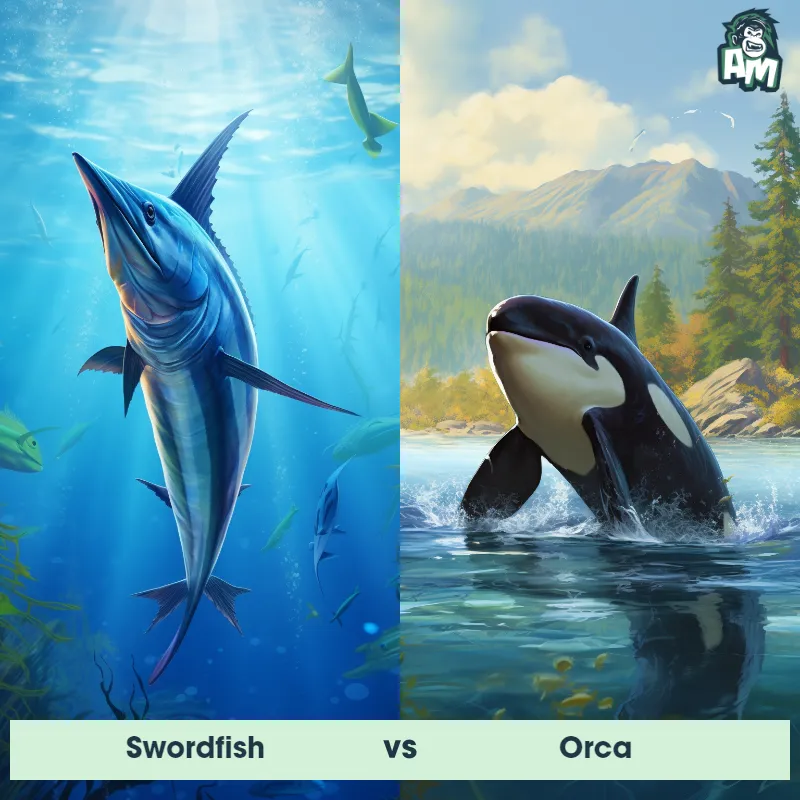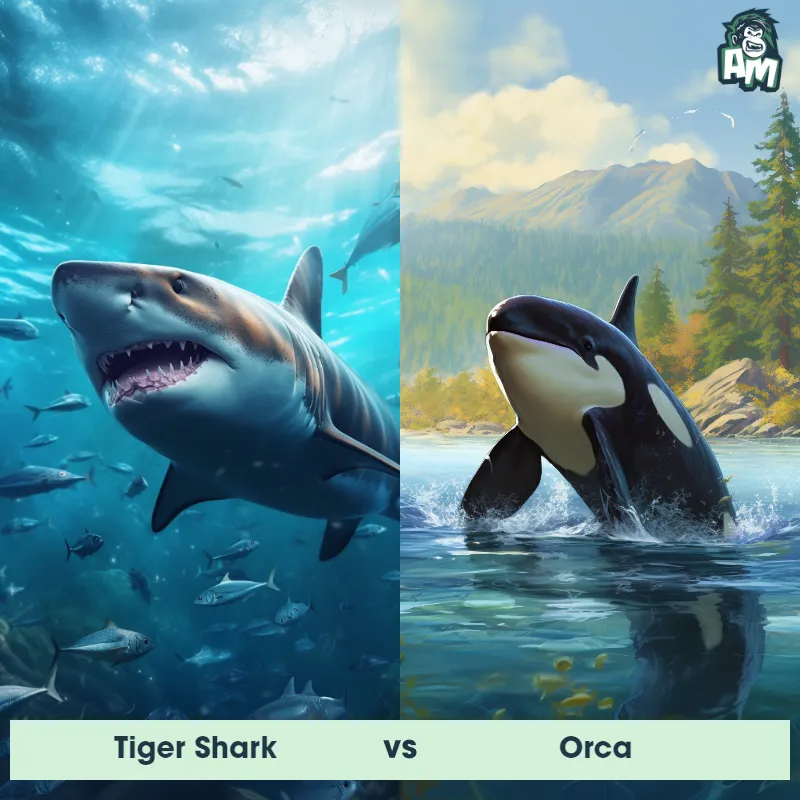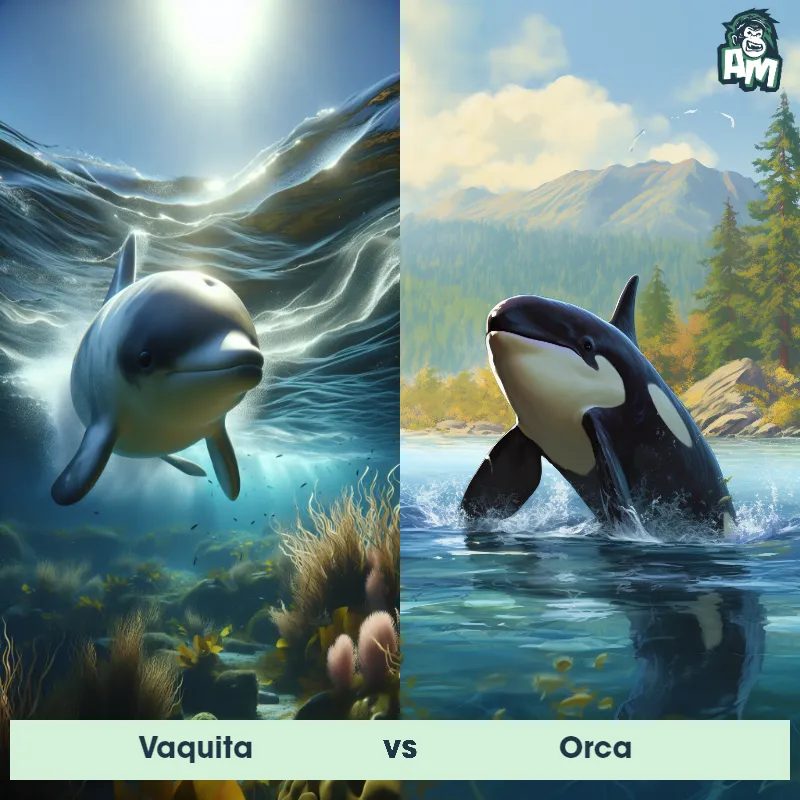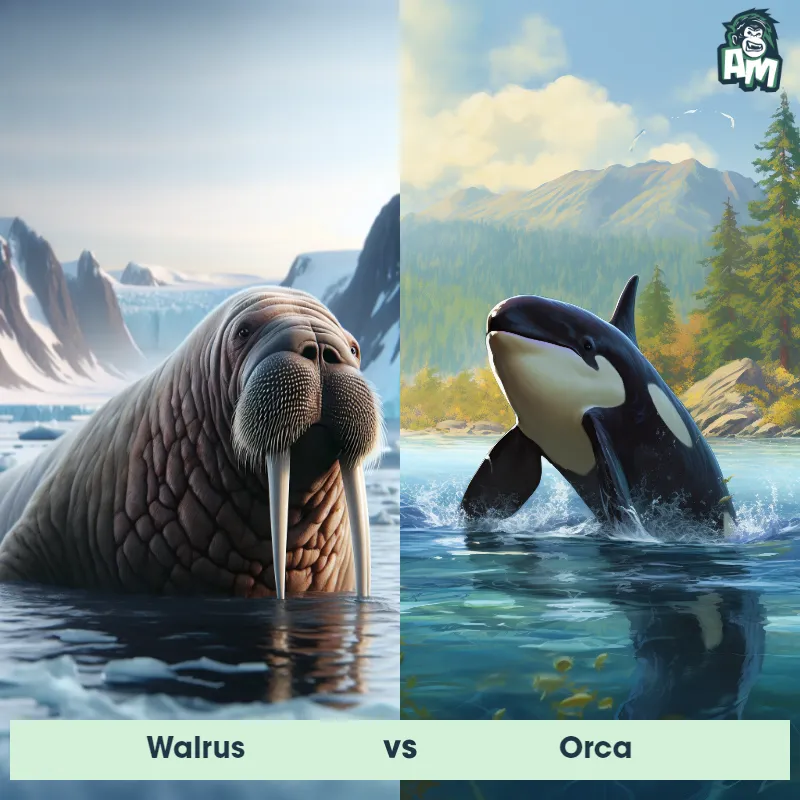The Orca
The Orca, also known as the killer whale, is a magnificent marine mammal that belongs to the dolphin family. With their sleek black and white bodies and impressive size, Orcas are easily recognizable. They have a distinctively tall, triangular dorsal fin and powerful flippers. These highly intelligent creatures are known for their complex social structures and incredible hunting skills, often hunting in coordinated groups called pods. Orcas are apex predators, feeding on a variety of prey including fish, seals, and even other whales. They are found in oceans all around the world and are highly adaptable to different environments.
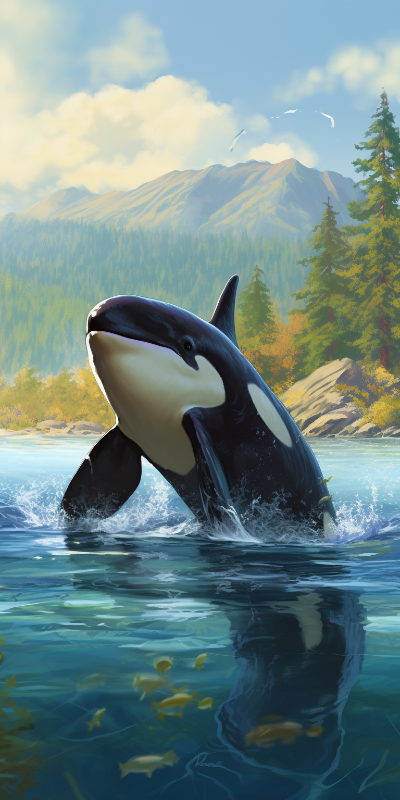
| Orca | |
|---|---|
| Size | Up to 26 feet long (7.9 meters) |
| Weight | Up to 6 tons (5,443 kilograms) |
| Speed | 35mph (56km/h) |
| Key Strength | Powerful predator with strong jaws and sharp teeth |
| Biggest Weakness | Limited mobility on land |
| Scientific Name | Orcinus orca |
| Family | Delphinidae |
| Habitat | Oceans worldwide |
| Geography | Global, most common in Arctic and Antarctic |
| Diet | Fish, seals, and other whales |
| Lifespan | 50 years - 80 years |

The Orca
The Orca, also known as the killer whale, is a magnificent marine mammal that belongs to the dolphin family. With their sleek black and white bodies and impressive size, Orcas are easily recognizable. They have a distinctively tall, triangular dorsal fin and powerful flippers. These highly intelligent creatures are known for their complex social structures and incredible hunting skills, often hunting in coordinated groups called pods. Orcas are apex predators, feeding on a variety of prey including fish, seals, and even other whales. They are found in oceans all around the world and are highly adaptable to different environments.
Fun Fact: Orcas are known for their remarkable communication skills and have a wide variety of vocalizations, including distinct dialects that can differ from pod to pod.
| Orca | |
|---|---|
| Size | Up to 26 feet long (7.9 meters) |
| Weight | Up to 6 tons (5,443 kilograms) |
| Speed | 35mph (56km/h) |
| Key Strength | Powerful predator with strong jaws and sharp teeth |
| Biggest Weakness | Limited mobility on land |
| Scientific Name | Orcinus orca |
| Family | Delphinidae |
| Habitat | Oceans worldwide |
| Geography | Global, most common in Arctic and Antarctic |
| Diet | Fish, seals, and other whales |
| Lifespan | 50 years - 80 years |
Orca Matchups
We use AI to simulate matchups between the Orca and other animals. Our simulation considers size, strength, and natural predatory behaviors to determine the most likely outcome.
Orca: Diet, Predators, Aggression, and Defensive Behaviors
What do Orcas eat?
Orcas, also known as killer whales, are apex predators that have a diverse diet. They primarily feed on fish, such as salmon and herring, as well as marine mammals like seals, sea lions, and even whales. Orcas have also been known to consume squid, seabirds, and even sharks.
Do Orcas have any predators?
As apex predators, Orcas do not have any natural predators in the wild. Their intelligence, hunting skills, and social structure make them one of the most dominant predators in the oceans. However, young or weak Orcas may fall victim to other large predators such as sharks or larger marine mammals.
Are Orcas aggressive?
Orcas are highly intelligent and social animals, but they can exhibit aggressive behavior, especially when hunting or competing for resources. They are known to work together in coordinated attacks to capture their prey. However, Orcas rarely display aggression towards humans in the wild.
Do Orcas fight?
Orcas are known to engage in aggressive interactions within their pods or with other pods. These fights can occur over territory, food, or mating rights. The clashes can involve physical aggression, such as ramming or biting, but they are usually not lethal.
How do Orcas defend themselves?
Orcas have several mechanisms to defend themselves against potential threats. Their size, strength, and intelligence help them to intimidate and outmaneuver predators. They may also use their speed and agility to evade danger or rely on their social structure and communication skills to coordinate a group defense.
What is Orcas' biggest weakness in a fight?
Despite being formidable predators, Orcas have a vulnerability when faced with environmental changes or human activities. Pollution, habitat loss, climate change, and overfishing can impact their food sources and disrupt their ecosystem. In captivity, Orcas also face physical and psychological challenges that can weaken their natural defenses.
Fun Fact: The Orca is considered one of the fastest marine mammals and can swim at speeds of up to 34.5 miles per hour 56 kilometers per hour.
Fun Fact: Despite their intimidating name, Orcas are actually quite playful and are known for engaging in behaviors such as breaching, where they leap out of the water, and spyhopping, where they raise their heads above the surface to observe their surroundings.



